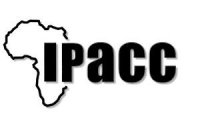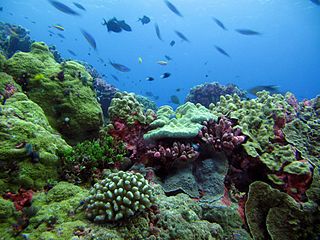
The European Environment Agency (EEA) is the agency of the European Union (EU) which provides independent information on the environment.

The Montreal Protocol is an international treaty designed to protect the ozone layer by phasing out the production of numerous substances that are responsible for ozone depletion. It was agreed on 16 September 1987, and entered into force on 1 January 1989. Since then, it has undergone nine revisions, in 1990 (London), 1991 (Nairobi), 1992 (Copenhagen), 1993 (Bangkok), 1995 (Vienna), 1997 (Montreal), 1998 (Australia), 1999 (Beijing) and 2016 (Kigali) As a result of the international agreement, the ozone hole in Antarctica is slowly recovering. Climate projections indicate that the ozone layer will return to 1980 levels between 2040 and 2066. Due to its widespread adoption and implementation, it has been hailed as an example of successful international co-operation. Former UN Secretary-General Kofi Annan stated that "perhaps the single most successful international agreement to date has been the Montreal Protocol". In comparison, effective burden-sharing and solution proposals mitigating regional conflicts of interest have been among the success factors for the ozone depletion challenge, where global regulation based on the Kyoto Protocol has failed to do so. In this case of the ozone depletion challenge, there was global regulation already being installed before a scientific consensus was established. Also, overall public opinion was convinced of possible imminent risks.

The United Nations Environment Programme (UNEP) is responsible for coordinating responses to environmental issues within the United Nations system. It was established by Maurice Strong, its first director, after the United Nations Conference on the Human Environment in Stockholm in June 1972. Its mandate is to provide leadership, deliver science and develop solutions on a wide range of issues, including climate change, the management of marine and terrestrial ecosystems, and green economic development. The organization also develops international environmental agreements; publishes and promotes environmental science and helps national governments achieve environmental targets.

Environmental policy is the commitment of an organization or government to the laws, regulations, and other policy mechanisms concerning environmental issues. These issues generally include air and water pollution, waste management, ecosystem management, maintenance of biodiversity, the management of natural resources, wildlife and endangered species. For example, concerning environmental policy, the implementation of an eco-energy-oriented policy at a global level to address the issues of global warming and climate changes could be addressed. Policies concerning energy or regulation of toxic substances including pesticides and many types of industrial waste are part of the topic of environmental policy. This policy can be deliberately taken to influence human activities and thereby prevent undesirable effects on the biophysical environment and natural resources, as well as to make sure that changes in the environment do not have unacceptable effects on humans.
Global Environment Outlook (GEO) is a series of reports that review the state and direction of the global environment, issued periodically by the United Nations Environment Program (UNEP). The GEO project is a response to the environmental reporting requirements of UN Agenda 21 and to a UNEP Governing Council decision of May 1995.
Digital Earth is the name given to a concept by former US vice president Al Gore in 1998, describing a virtual representation of the Earth that is georeferenced and connected to the world's digital knowledge archives.

Carousel Productions, Inc. is the organization that currently owns and runs the Miss Earth and Miss Philippines Earth beauty contest. The annual events are produced in partnership with ABS-CBN Corporation. The organization is based in the Philippines.

The Indigenous Peoples of Africa Co-ordinating Committee (IPACC) was founded in 1997. It is one of the main trans-national network organizations recognised as a representative of African indigenous peoples in dialogues with governments and bodies such as the UN. As of 2008, IPACC was composed of 150 member organisations in 21 African countries.
Waste, unwanted or unusable material, varies in type and quantity in different countries.
Environmental governance (EG) consist of a system of laws, norms, rules, policies and practices that dictate how the board members of an environment related regulatory body should manage and oversee the affairs of any environment related regulatory body which is responsible for ensuring sustainability (sustainable development) and manage all human activities—political, social and economic. Environmental governance includes government, business and civil society, and emphasizes whole system management. To capture this diverse range of elements, environmental governance often employs alternative systems of governance, for example watershed-based management.

The World Database on Protected Areas (WDPA) is the largest assembly of data on the world's terrestrial and marine protected areas, containing more than 260,000 protected areas as of August 2020, with records covering 245 countries and territories throughout the world. The WDPA is a joint venture between the United Nations Environment Programme World Conservation Monitoring Centre and the International Union for Conservation of Nature World Commission on Protected Areas.

Climate change scenarios or socioeconomic scenarios are projections of future greenhouse gas (GHG) emissions used by analysts to assess future vulnerability to climate change. Scenarios and pathways are created by scientists to survey any long term routes and explore the effectiveness of mitigation and helps us understand what the future may hold this will allow us to envision the future of human environment system. Producing scenarios requires estimates of future population levels, economic activity, the structure of governance, social values, and patterns of technological change. Economic and energy modelling can be used to analyze and quantify the effects of such drivers.

The International Resource Panel is a scientific panel of experts that aims to help nations use natural resources sustainably without compromising economic growth and human needs. It provides independent scientific assessments and expert advice on a variety of areas, including:
Sustainable products are those products that provide environmental, social and economic benefits while protecting public health and environment over their whole life cycle, from the extraction of raw materials until the final disposal.
United Nations System-wide Earthwatch is an initiative set up by the United Nations to bring together environmental observations by UN agencies within a consistent framework.

The 1998 United Nations Climate Change Conference took place in November 1998 in Buenos Aires, Argentina. The conference included the 4th Conference of the Parties (COP4) to the United Nations Framework Convention on Climate Change (UNFCCC). It had been expected that the remaining issues unresolved in Kyoto would be finalized at this meeting. However, the complexity and difficulty of finding agreement on these issues proved insurmountable, and instead the parties adopted a 2-year "Plan of Action" to advance efforts and to devise mechanisms for implementing the Kyoto Protocol, to be completed by 2000. During the conference, Argentina and Kazakhstan expressed their commitment to take on the greenhouse gas emissions reduction obligation, the first two non-Annex countries to do so.

The Millennium Ecosystem Assessment (MA) is a major assessment of the human impact on the environment, called for by the United Nations Secretary-General Kofi Annan in 2000, launched in 2001 and published in 2005 with more than $14 million of grants. It popularized the term ecosystem services, the benefits gained by humans from ecosystems.
The Global Peatlands Initiative is an effort made by leading experts and institutions formed in 2016 by 13 founding members at the UNFCCC COP in Marrakech, Morocco. The mission of the Initiative is to protect and conserve peatlands as the world's largest terrestrial organic carbon stock and to prevent it from being emitted into the atmosphere.
Elaine Baker holds the UNESCO Chair in Marine Science at the University of Sydney. She was the Director of the University of Sydney Marine Studies Institute from 2015 to 2020 Her position is supported by GRID-Arendal, a centre collaborating with the United Nations Environment Programme (UNEP).











